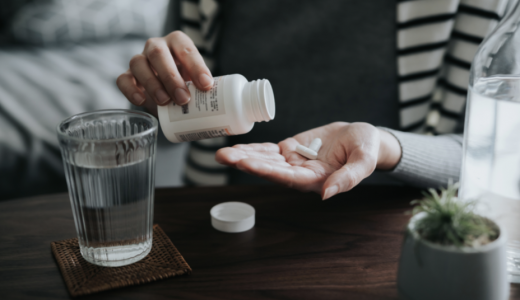Australia is running out of crucial medication: TGA issues warning
- Replies 7
Australia is currently facing a shortage of a common medication used by millions, with the Therapeutic Goods Administration (TGA) confirming there is 'limited availability' of the drug across the country.
Amoxicillin - an antibiotic medication used to treat bacterial infections - is currently in high demand due to an unexpected increase over recent months.

As a result, many pharmacists and GPs are struggling to keep up with patient requests for the life-saving drug.
Anthony Tassone, from the Pharmacy Guild of Australia, told a news source that shortages like this one cause 'a lot of disruption and frustration for patients, doctors and pharmacies'.
He added that most pharmacies around Australia have already run out of stock, saying: 'This has ranged from children's formulations and also tablets and capsules for adults.'
Chemist Warehouse pharmacist Angela Stathopoulos echoed these sentiments, telling reporters that alternate brands of amoxicillin are also under increasing pressure due to patient demand.
'When one brand goes out of stock, it then puts pressure on the other brands because everyone is looking for alternatives,' she said. 'But pharmacists and GPs can work together to determine what the best alternative is for each patient.'
According to Ms Stathopoulos, patients should always consult with their healthcare professional before taking any new medication.
Credit: HOW TO MEDICATE.
What is amoxicillin, and what does it do?
Amoxicillin belongs to a class of antibiotic drugs called penicillins. It is effective against a wide variety of bacteria that cause illnesses like pneumonia and tooth abscesses and can be used in conjunction with other antibiotics and drugs to heal stomach ulcers.
I am taking amoxicillin. How will I be affected by the shortage, and what can I do about it?
If a patient has any queries or concerns, the TGA has recommended that there are various brands, strengths, or alternative alternatives that are available and have a similar spectrum of activity. Patients are also urged to consult with their pharmacist or GP.
In an effort to mitigate the impact of the shortages, the organisation confirmed that it has authorised the importation and distribution of ten amoxicillin medicines with foreign registration.
Australia is not the only country currently experiencing a shortage of amoxicillin due to high demand. According to the US Food and Drug Administration, the United States is also facing a lack of availability of the drug.
Government databases in Ireland, Malaysia, and Romania have reported similar shortages in recent months, with some attributing the problem to manufacturing issues and others citing unexpected patient demand.

Members, if you or someone you know is currently taking amoxicillin, it is important to speak with a healthcare professional before making any changes to your medication.
Like any other medication, amoxicillin is not suitable for everyone. To make sure amoxicillin is safe for you, tell your doctor if you:
Amoxicillin - an antibiotic medication used to treat bacterial infections - is currently in high demand due to an unexpected increase over recent months.

The country is experiencing a shortage of the antibiotic amoxicillin, which is used to treat a wide range of bacterial diseases. Credit: Getty.
As a result, many pharmacists and GPs are struggling to keep up with patient requests for the life-saving drug.
Anthony Tassone, from the Pharmacy Guild of Australia, told a news source that shortages like this one cause 'a lot of disruption and frustration for patients, doctors and pharmacies'.
He added that most pharmacies around Australia have already run out of stock, saying: 'This has ranged from children's formulations and also tablets and capsules for adults.'
Chemist Warehouse pharmacist Angela Stathopoulos echoed these sentiments, telling reporters that alternate brands of amoxicillin are also under increasing pressure due to patient demand.
'When one brand goes out of stock, it then puts pressure on the other brands because everyone is looking for alternatives,' she said. 'But pharmacists and GPs can work together to determine what the best alternative is for each patient.'
According to Ms Stathopoulos, patients should always consult with their healthcare professional before taking any new medication.
Credit: HOW TO MEDICATE.
What is amoxicillin, and what does it do?
Amoxicillin belongs to a class of antibiotic drugs called penicillins. It is effective against a wide variety of bacteria that cause illnesses like pneumonia and tooth abscesses and can be used in conjunction with other antibiotics and drugs to heal stomach ulcers.
I am taking amoxicillin. How will I be affected by the shortage, and what can I do about it?
If a patient has any queries or concerns, the TGA has recommended that there are various brands, strengths, or alternative alternatives that are available and have a similar spectrum of activity. Patients are also urged to consult with their pharmacist or GP.
In an effort to mitigate the impact of the shortages, the organisation confirmed that it has authorised the importation and distribution of ten amoxicillin medicines with foreign registration.
Australia is not the only country currently experiencing a shortage of amoxicillin due to high demand. According to the US Food and Drug Administration, the United States is also facing a lack of availability of the drug.
Government databases in Ireland, Malaysia, and Romania have reported similar shortages in recent months, with some attributing the problem to manufacturing issues and others citing unexpected patient demand.
Key Takeaways
- Australia is facing a shortage of amoxicillin, an antibiotic medication used to treat bacterial infections, due to an 'unexpected increase in demand' over recent months.
- Shortages cause a lot of disruption and frustration for patients, doctors and pharmacies. To minimise the impact, the TGA has approved the importation and supply of 10 overseas-registered amoxicillin products.
- Australia is not the only country to experience an amoxicillin shortage due to high demand.
Members, if you or someone you know is currently taking amoxicillin, it is important to speak with a healthcare professional before making any changes to your medication.
Like any other medication, amoxicillin is not suitable for everyone. To make sure amoxicillin is safe for you, tell your doctor if you:
- have ever had an allergic reaction to amoxicillin or penicillin or any other medicine,
- have liver or kidney problems,
- have recently had, or are due to have, any vaccinations.








